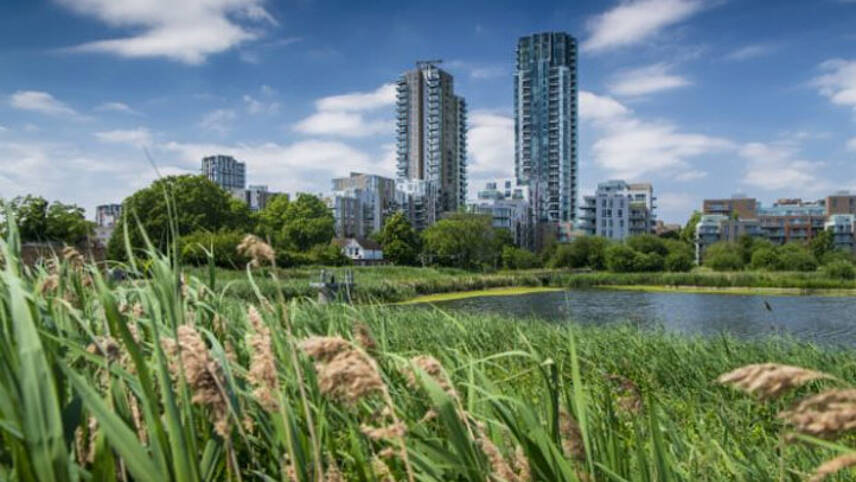Register for free and continue reading
Join our growing army of changemakers and get unlimited access to our premium content

Image: Natural England
From November, the developers of all large domestic, industrial, commercial and mixed-use sites will need to prove that they have improved biodiversity at their site by at least 10%. This requirement will expand to cover smaller sites in the first half of 2024.
The Department for Environment, Food and Rural Affairs (Defra) has cautioned developers against ‘offsetting’ by creating biodiversity away from sites of any size and is limiting the number of “last-resort” credits it will issue for offsetting.
Responding to concerns that there may not be experts available in certain regions to baseline and measure biodiversity, Defra has this week pledged £9.6m of funding for councils. The funding will support local authorities to hire ecologists, evaluation specialists and other experts.
Councils will need to apply for a share of the funding. All councils in England have been emailed about the grant.
Berkeley Group’s chief executive Rob Perrins said the announcement from Defra “will provide greater certainty ahead of the go-live date in November”.
Defra has stated that it will “fund all new burdens on local authorities arising from the Environment Act”.
Earlier this week, the East West Railway Company’s head of environment Vanessa Hilton published an op-ed on edie outlining how the company set out its biodiversity net gain plans. You can read that article in full here.
Separately to the funding, councils are being asked if they would like to take up new conservation responsibilities.
Upon successful application to Defra, they will be designated as ‘responsible bodies’ for the upholding of legal conservation and restoration requirements on development sites in their regions.
The successful councils will enter into a new kind of voluntary ‘conservation covenant’ with the Government. Under these covenants, they take up responsibility for the delivery of biodiversity net gain, and also for conserving places of interest.
Related news: UK only has slim chances of meeting 2030 nature conservation promise, warn Lords


Please login or Register to leave a comment.